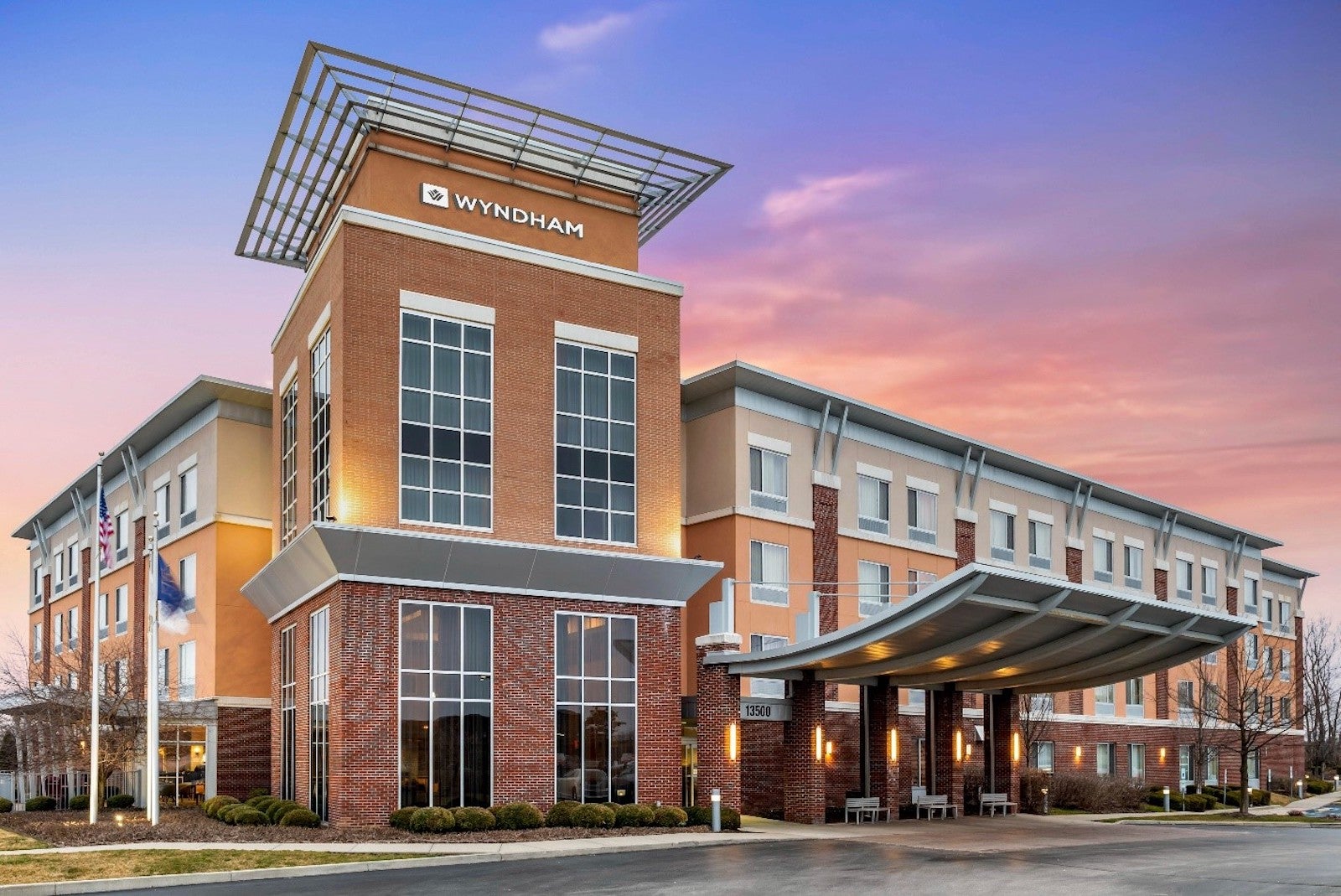Hilton’s push into budget travel isn’t hurting the company many expected to take a hit
When Hilton first announced its economy brand Spark at the beginning of this year, hotel industry analysts buzzed over the potential blow that would have to Wyndham Hotels & Resorts. Wyndham is the world’s largest hotel company in terms of hotel count, and it’s a major player in the economy and midscale hotel space with brands like La Quinta, Microtel and Days Inn.
Hilton’s latest pipeline numbers indicate the company has 60 deals signed for Spark and another 400 in the works. Nearly all these deals are conversions from third-party brands.
But after spending the last three days in Anaheim at Wyndham’s annual global conference of hotel owners, I can tell you it didn’t appear budget hotel owners affiliated with Wyndham were looking to jump ship.
Wyndham executives like CEO Geoff Ballotti touted the company’s more than 95% retention rate of hotel owners sticking to the Wyndham system. That doesn’t exactly signal an alarm bell that owners of these budget hotels are looking to cozy up to a new parent company and loyalty network. Instead, it appears Hilton might have to go looking elsewhere if it wants to tap into a pool of unsatisfied owners ready to uncouple from their existing franchise agreement.
“We have not yet lost an economy hotel, and it was announced [less than] a year ago,” Ballotti told TPG in response to whether there were any concerns about owners deciding to shift their properties to Hilton’s Spark brand.
Certain hotel snobs reading this might be a little confused. Plenty of you out there are die-hard Marriott, Hilton or Hyatt customers and won’t stray from the pack too much. After all, hotel companies haven’t made a ton of extreme shifts in loyalty — like the one Delta Air Lines made this week — that would cause many to think about loyalty-free agency.
But Wyndham’s hefty ownership retention bragging rights might have more to do with the bargains it offers owners: Hilton touted Spark would grow rapidly because it would offer owners an affordable option to convert their existing hotel into the new brand; the company said it would coast about $20,000 to $25,000 per room. But Wyndham executives this week noted their most up-to-date Days Inn conversion clocks in at just less than $2,500 per room.
“There are a lot of independent [hotels] out there. We wish them well,” Ballotti said. “But the cost of build is more targeted to the midscale, we believe, than in the economy segment, which is why we’re feeling really good about our economy brands. To date, we haven’t seen any detractions.”
If I was a Wyndham owner, I would probably be elated if my renovation costs came in at a tenth the price of Hilton’s. The biggest factor is whether a lower-priced renovation at an established brand can win over travelers or if they’ll flock to the newer, lesser-known premium economy brand.

Daily Newsletter
Reward your inbox with the TPG Daily newsletter
Join over 700,000 readers for breaking news, in-depth guides and exclusive deals from TPG’s experts
Housekeeping
One of Wyndham’s bigger guest-facing tech rollouts in recent years is mobile tipping for housekeepers — something I’m still surprised hasn’t yet made the rounds at Wyndham’s competitors. When you go to check out, you can leave a tip via the Wyndham app for your housekeeper rather than worrying about cash.
This is partially driven by younger generations increasingly ditching cash for digital wallets amid the rise in mobile ordering and Apple Pay. But there’s a business case for mobile tipping for housekeeping, too.
Wyndham execs claim mobile tipping led to a 30% increase in retention rates of housekeepers, while the tipping also meant workers saw a consistent boost in their wages. Guests might grumble over whether or not they should be subsidizing a hotel’s payroll with tips, but consider it from a different angle: Housekeepers laid off during the pandemic found better-paying jobs in industries outside the hotel sector like retail or distribution for companies like Amazon.
There was already a hotel worker shortage heading into the pandemic, and the mass exodus (admittedly, fueled by layoffs) certainly played a role in the withdrawal of daily housekeeping at many hotels across the U.S. Finding any way to bring those workers back into the industry or encouraging new employees to join hospitality is crucial to bringing back certain customer service elements.
Future of free breakfast (and other guest expectations)
A growing critique among U.S. hotel guests is how rates soared, but service levels didn’t keep up during the pandemic. While travelers may have been forgiving during earlier stages of reopening, paying $700 a night for no daily housekeeping and limited services and amenities at a hotel isn’t going over so well anymore.
Wyndham rolled out a new guest engagement platform with features such as AI-driven property messaging, mobile check-in and checkout, and various upselling opportunities. These upselling opportunities may include a room closer to the pool or even a bottle of chilled Champagne waiting for you upon arrival to your guest room.
Ballotti noted several ways Wyndham is working to keep customer service scores high, even if there are tweaks to how it’s delivered. Free breakfast is back, but that doesn’t necessarily mean a hot breakfast item at economy brands like Super 8 is included like it was prior to the pandemic.
“If you’re staying in an economy hotel, you don’t necessarily need that hot breakfast,” he said. “What you’re really looking for is a very clean, well-maintained room.”
Keep an eye on this space, especially as more brands get into “premium economy” and “lower midscale” — essentially, terms used to describe more affordable hotel brands — market segments. Competition means these companies will inevitably do more to differentiate their offerings and win over more customers in the process.
Related reading:

